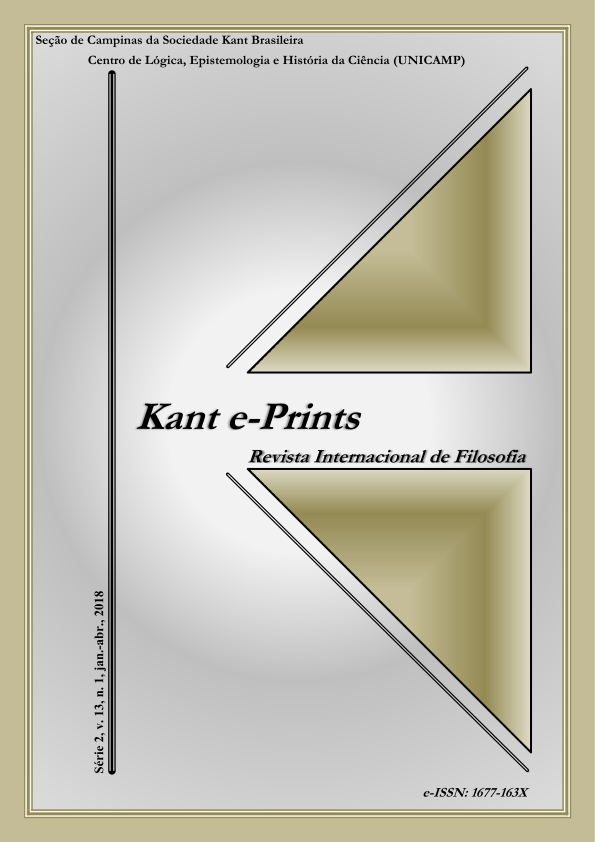Resumen
The claim that “concepts serve as rules for the synthesis of representations” is understood by the mainstream of Kant’s scholarship as if categories and concepts in general are conditions for the constitution of objects out of the manifold of sensations devoid of reference. That is the claim that I wish to question here. The claim comes in different flavors and formulations. Still, none of them are relevant here. My aim is to provide an alternative account for the claim that “the representation makes the object possible.” I argue that the traditional view represents a solution to what I call the pseudo problem of intentionality, namely to account for how a representation of something emerges out of a manifold of sensations devoid of reference. Yet, the intentionality problem is a misunderstanding of what I call the recognition thesis: the role of concepts is to provide the rules for the (mind-dependent) recognition (Erkenntnis) of the mind-independent existence of transcendental objects (noumena). “The representation makes the object possible” in the relevant sense that only by means of concepts can we recognize that what is sense-dependently represented actually exists mind-independently as transcendental objects or noumena in the negative sense. My view is embedded in the framework of what today is called “Kantian Nonceptualism”. Still, my view is neither a simply re-statement of Kantian Nonconceptualism nor depend on it. It is independently grounded on what Kant calls “Erkenntnis”.
Desde 2022, todo o conteúdo publicado pela Kant e-Prints está sob a licença Creative Commons Atribuição 4.0 Internacional (CC BY 4.0).
